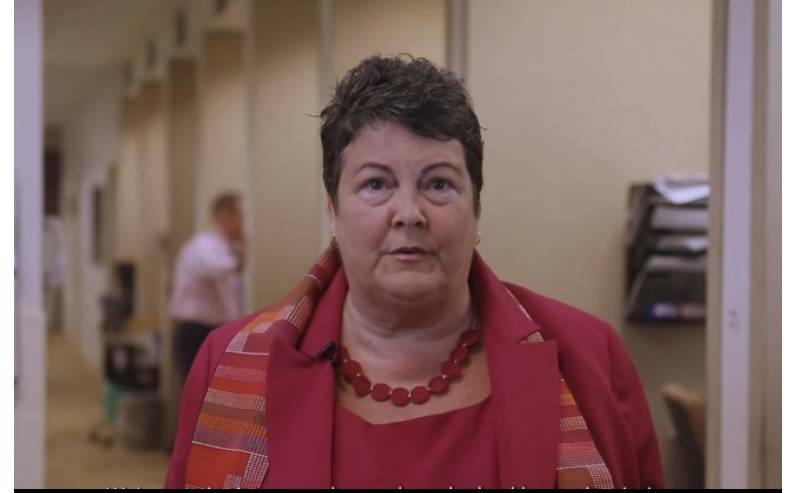Ghana remains important to us ‘no matter what’ – U.S ambassador
The United States Ambassador to Ghana, Virginia Palmer, has reaffirmed the strong relationship between Ghana and the U.S., despite recent shifts in American trade policies. Her statement follows the decision by U.S. President Donald Trump to introduce widespread tariffs on imports from various countries, including Ghana. As part of these new measures, Ghanaian exports to the U.S. will now be subject to a 10% levy. This development has sparked concerns about the future of trade relations between the two nations and the broader implications for global commerce.
Speaking in her first media address since the U.S. administration change, Ambassador Palmer stressed that Ghana remains a key partner of the United States, regardless of evolving trade policies or diplomatic language. She highlighted that American support for Ghana’s economic recovery is unwavering, citing financial assistance through international institutions like the World Bank and the International Monetary Fund (IMF), as well as continued American private sector engagement in the country.
Palmer also revealed plans for an upcoming trade mission, though she did not disclose specific details. She suggested that this initiative would strengthen investment opportunities and further deepen economic ties between the two countries. Her remarks emphasized the long-standing partnership between Ghana and the United States, which is rooted in historical, cultural, and commercial connections. Currently, bilateral trade between the two nations is valued at approximately $3 billion.
The Ambassador’s reassurances come at a time when concerns are mounting over the impact of Trump’s tariffs. Under the International Emergency Economic Powers Act of 1977, the new 10% tariff on Ghana and other affected nations will be enforced starting April 5. President Trump has argued that these measures are necessary to address trade imbalances. In addition to the blanket tariff, he announced that countries with the highest trade disparities with the U.S. will face customized tariffs. These country-specific tariffs will be calculated at half the rate of the duties imposed on U.S. exports to those nations.
Despite these policy changes, Ambassador Palmer remains optimistic about the U.S.-Ghana relationship. She reiterated that Ghana is a crucial ally and that efforts will continue to strengthen economic cooperation. With the forthcoming trade mission and ongoing U.S. investment in Ghana, she expressed confidence in the resilience of their economic partnership.
While concerns persist over the potential economic effects of these tariffs, Palmer’s remarks serve to reassure Ghanaian businesses and policymakers that the U.S. values its relationship with Ghana and is committed to maintaining strong diplomatic and economic ties.




No comments yet
Be the first to share your thoughts!